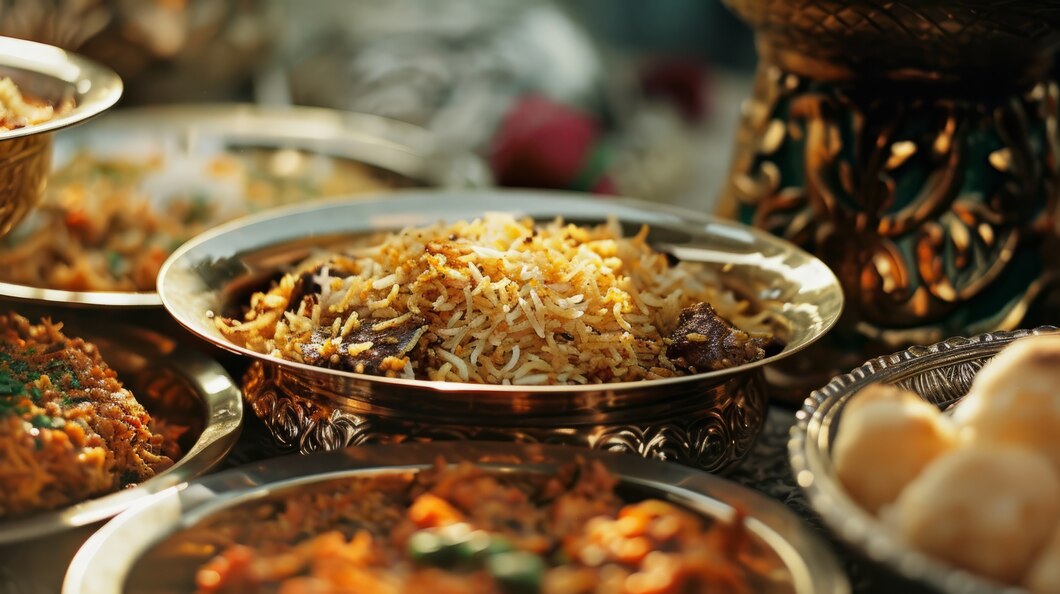Question
Is it permissible to eat food that is distributed on the birthday of the Prophet Muhammad (peace and blessings be upon him)? Some people quote as evidence that because Abu Lahab freed a slave on the Prophet’s birthday, his punishment was lightened that day.
Bottom Line
You may eat the food, but do not endorse it.
Quick Answer
There is no Islamic festival called Mawlid. It was introduced centuries later. Any act done specifically to honor it is bid‘ah. If meat is sacrificed for the Prophet ﷺ, that is major shirk. If the food is just normal halal food, it remains halal in itself. A Muslim should avoid eating it during the gathering, so as not to endorse Mawlid. If the food reaches you outside the context of the celebration, there is no sin in eating it.
Key Points
- The Sahabah and early generations never observed Mawlid, and it was first introduced by rulers in the 6th–7th century AH.
- If slaughtered in the name of the Prophet ﷺ, it is shirk.
- If it is simply halal food, then it is halal, but avoid eating it in the Mawlid setting, and if food is given to you later, separate from the celebration, it is permissible to eat.
Detailed Answer
Islam is perfect and complete. Celebrating the Prophet’s birthday was never practiced by the earliest generations, nor taught by the Prophet ﷺ himself. It appeared centuries later and included food, songs, gatherings, and sometimes even prohibited acts.
The ruling on food is nuanced:
If the meat is sacrificed for the Prophet ﷺ, this is an act of major shirk, and such meat cannot be eaten.
If the food is halal but cooked for the Mawlid gathering, in essence, the food remains halal. However, scholars like Shaykh Ibn Baaz and Shaykh al-Fawzaan advised not to eat from it in the setting of the celebration. This way, a Muslim makes clear they do not support the innovation.
If the food is received later, outside the Mawlid context (for example, given to you by someone who attended), there is no harm in eating it, since its origin is halal.
This distinction is important: the prohibition is not because the food itself is haram, but because of what eating it in that moment represents, supporting an innovative practice.
What This Means for You
If offered food during a Mawlid celebration, politely decline to avoid endorsing the innovation. But if the same food comes to you outside that setting, you may eat it without issue. The act of refusal is about protecting the Sunnah, not about the food itself.
And Allah knows best.
References
Primary Sources
Qur’an
- Aal ‘Imraan 3:31: Following the Prophet ﷺ is proof of love for Allah.
- Al-A‘raaf 7:3: Follow revelation, not invented ways.
- Al-An‘aam 6:153: Stay on Allah’s straight path.
- Al-Maa’idah 5:2: Do not cooperate in sin and transgression.
Hadith
- Sahih al-Bukhari 2697: “Whoever introduces into this matter of ours that which is not part of it will have it rejected.”
- Sahih Muslim 1718: “Whoever does a deed that is not in accordance with this matter of ours will have it rejected.”
Secondary Sources
- Ibn Baaz, Majmoo‘ al-Fataawa, 9/74: Fatwa on meat prepared for Mawlid.
- Ibn Katheer, al-Bidaayah wa’l-Nihaayah, 13/137: Historical origin of Mawlid celebrations.
- Ibn Khalqaan, Wafiyaat al-A‘yaan, 3/274: Early descriptions of Mawlid feasts and gatherings.
Was this helpful?
Leave Your Comments
© Copyright 2025, All Rights Reserved

